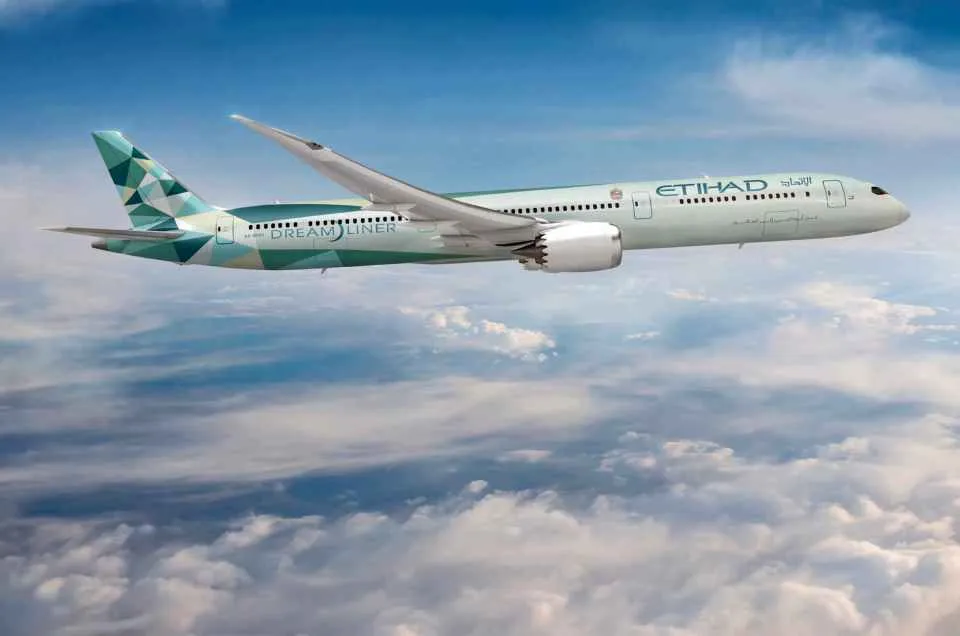
Boeing: Middle East Widebody Deliveries To Soar
Nov 12, 2023

Boeing is poised to experience a significant increase in widebody aircraft deliveries to the Middle East, driven by rising demand for air travel and the expansion of airline fleets in the region. With airlines focusing on modernizing their operations and enhancing passenger experience, the need for advanced, fuel-efficient widebody jets is becoming increasingly critical. This surge in deliveries is expected to bolster the Middle East's position as a key player in global aviation, facilitating connectivity and supporting the region's growing tourism and business sectors. Boeing's strategic focus on meeting these demands underscores its commitment to the Middle East market.
The aviation industry is witnessing a transformative phase as demand for widebody aircraft in the Middle East is projected to soar in the coming years, particularly for Boeing. This surge is largely driven by increasing passenger traffic, expansion of airline fleets, and the region's strategic importance as a global aviation hub. With airlines looking to enhance their operational efficiency and improve passenger experience, the need for advanced widebody jets has never been more critical.
Market Dynamics Driving Demand
The Middle East has established itself as a pivotal player in the global aviation landscape. Several key factors contribute to the anticipated growth in widebody deliveries:
- Growing Passenger Traffic: The Middle East is experiencing a robust increase in air travel, with passenger numbers expected to rise significantly over the next decade. This growth is fueled by a burgeoning middle class and increased tourism.
- Fleet Expansion: Major airlines in the region, such as Emirates, Qatar Airways, and Etihad Airways, are actively expanding their fleets to meet rising demand. This expansion necessitates the acquisition of new widebody aircraft.
- Strategic Location: The Middle East serves as a key transit hub connecting Europe, Asia, and Africa. Airlines are investing in widebody aircraft to capitalize on this geographic advantage.
Boeing's Competitive Edge
Boeing has consistently maintained a competitive edge in the widebody aircraft market through innovation and strategic partnerships. The company offers a diverse range of aircraft models tailored to meet the specific needs of airlines operating in the Middle East.
| Aircraft Model | Key Features | Passenger Capacity |
|---|---|---|
| Boeing 777X | Advanced aerodynamics, fuel-efficient engines | Up to 426 |
| Boeing 787 Dreamliner | Composite materials, improved cabin comfort | Up to 296 |
| Boeing 767 | Versatile, proven performance | Up to 216 |
These aircraft not only provide significant operational efficiencies but also enhance the passenger experience with modern amenities and spacious interiors.
Future Projections
According to industry forecasts, Boeing is expected to deliver a substantial number of widebody aircraft to Middle Eastern airlines over the next decade. The following chart illustrates the anticipated deliveries:
| Year | Projected Deliveries |
|---|---|
| 2023 | 20 |
| 2024 | 25 |
| 2025 | 30 |
| 2026 | 35 |
| 2027 | 40 |
This upward trend in deliveries highlights the confidence airlines have in Boeing's capabilities and the increasing reliance on widebody aircraft to accommodate passenger growth.
Challenges and Opportunities
While the outlook for Boeing's widebody deliveries in the Middle East is promising, several challenges must be navigated:
- Supply Chain Constraints: The global supply chain has faced disruptions, impacting production timelines and delivery schedules. Boeing is working diligently to overcome these hurdles to meet demand.
- Competition: The widebody aircraft market is competitive, with Airbus also vying for market share in the Middle East. Boeing must continue to innovate and offer compelling value propositions.
- Environmental Regulations: Increasingly stringent regulations regarding emissions are prompting airlines to seek more fuel-efficient aircraft. Boeing's advancements in technology will be crucial in addressing these concerns.
Despite these challenges, opportunities abound for Boeing. The increasing emphasis on sustainability and efficiency positions Boeing to lead in the development of next-generation aircraft that align with environmental goals.
Conclusion
In conclusion, Boeing's widebody deliveries to the Middle East are poised to soar as airlines expand their fleets to meet rising demand. The combination of growing passenger traffic, fleet expansion, and the region's strategic significance makes it an attractive market for Boeing. As the company navigates challenges and capitalizes on opportunities, its commitment to innovation and sustainability will be vital in maintaining its leadership position in the aviation industry.
With forecasts indicating a robust growth trajectory, stakeholders should keep a close watch on Boeing's developments in the Middle East, as they are likely to shape the future of air travel in the region.
Related Articles

Explore Thailand: The Best Islands to Visit for Paradise, Adventure, and Relaxation

The Ultimate Guide to the Best Islands in Thailand for Your Next Getaway

Do babies need passports? How to get a passport for a newborn

How to get a U.S. passport fast: here’s how to expedite the process

What is Mobile Passport Control: 5 reasons why you should use it

SENTRI vs. Global Entry: A detailed guide

Do you need a passport to go to the Bahamas? Let’s find out

Do you need a passport to go to Mexico? A detailed guide

Do you need a passport to go to Canada? We got the answer

Do You Need a Passport for a Cruise: An Essential Travel Guide

Booster Seat Requirements: All the Rules to Follow in Your Rental Car

What Are the World’s Most Powerful Passports, and How Does Yours Rank?

How to Take a Passport Photo at Home: A Helpful Guide

You've got to have heart! Southwest's new livery

Your opinion: Should water be free on low cost carriers?

Young women bolder than guys as solo travellers
